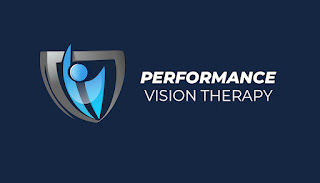
Speech-Language Pathologists and Vision Therapist's work together Do you or someone you know have a speech disorder or vision problem? If so, it's important to understand the how Speech-Language Pathologists (SLPs) and Vision Therapists work together to help. SLPs provide diagnostics and therapeutic activities related to communication, voice and speech disorders while Vision Therapists specialize in administering assessments for visual motor/perceptual rehabilitation services relating to vision deficiencies. In this blog post, we'll discuss why collaboration between these two specialists can be beneficial for people with communication impairments as well as conditions like strabismus or amblyopia (also known as "lazy eye"). We will also explore ways SLPs and Vision Therapist collaborate when treating individuals with both communication disorders AND visual issues! Why Speech-Language Pathologists and Vision Therapists are a powerful team Did you know that spe...




